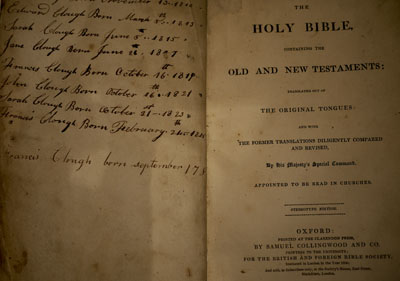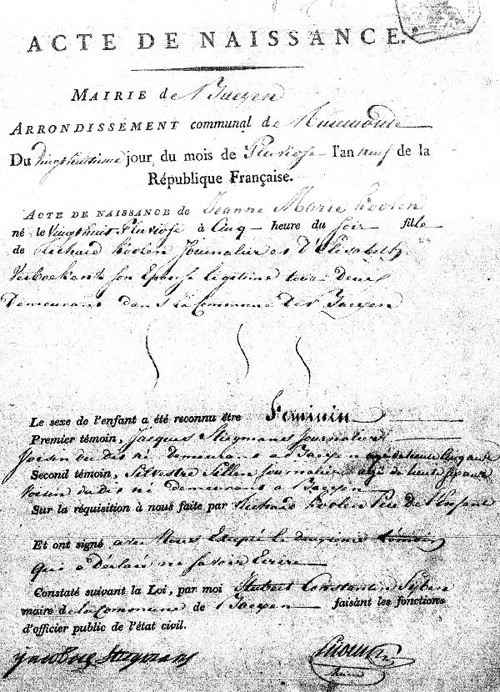4. Talk to Your Relatives
A major advantage of talking to relatives is that it forces you to first collect information on your living relatives. Don't underestimate this approach. Many of your relatives know a wealth of information about your family. As well, the more knowledgeable family members tend to also be the oldest family members. Some of them might not be living for many more years. Don’t lose your opportunity to interview them while they are still alive.
5. See if Someone has Already Done Your Family Tree
Finding old records can be difficult. Unless you are prepared to travel to the source of a document, you will be dependant on the internet to examine such records. Unfortunately, historic records tend to be handwritten. After all, the first commercial typewriter did not appear until 1867 and typewriters were not standardized until 1910. Most official government records before this time (and many non-government records after this time) are likely to be handwritten.

Early handwritten records are not machine readable. This means someone has to attempt to read the writing and retype the information into a database. This is both time consuming and expensive. As a result, many old handwritten records have never been put into electronic form in a manner that can be searched on the internet.
Surprisingly, many families have published their family trees in book format. As well, before the age of the internet, local history books often described families that lived in the area. You can use our Rare Book Search Engine to check about 250 million out-of-print books to see if anyone has published your family history. The best source, however, is to ask family members if anyone in the extended family has already done a family tree.
Many family trees are also online. GenealogyInTime Magazine has a special Family Tree Search Engine that searches billions of records from genealogy forums and online family trees. It is definitely worth checking to see if anyone else in the world is talking about your family. Simply start by entering the names of some of your ancestors. If you need help with this try our Guide to Performing Online Genealogy Searches.

6. Use Libraries for Internet Research
Searching old records on the internet can be expensive. Many internet sites that contain such records charge either a monthly access fee or a pay-per-record fee. One way to keep costs down is to locate free alternatives to such subscription services. Free records do exist on the internet, but it can take some digging to find them. Fortunately, GenealogyInTime Magazine also has a Genealogy Search Engine that searches over 4 billion free ancestral records on thousands of different websites from around the world.
We also keep the most complete list of the newest genealogy records available on the internet. Another great free genealogy search website is FamilySearch.org It is always worth checking out these free resources before using subscription genealogy websites.
Another way to keep costs down is to use your local library. Many libraries maintain internet subscriptions to the most popular genealogy databases (including Ancestry and FindMyPast) plus other genealogy databases that are available only to libraries (such as Readex). By using your local library to access the information for free, you can avoid the cost of paying for these services.


